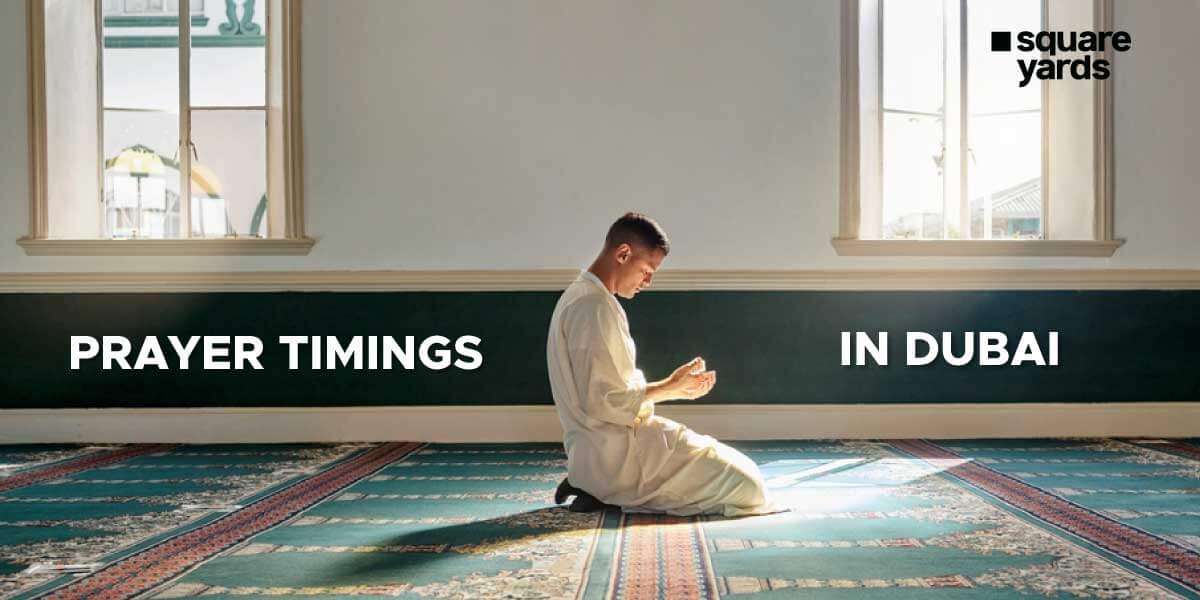In February 2025, Dubai combines modern allure with timeless traditions, creating a harmonious blend of old and new. With the calls to prayer, the Muslim population in Dubai celebrates and spends the month of February in moments of reflection and connection. Muslims who faithfully observe the daily Islamic prayer “Namaz” always double-check the Dubai prayer schedule to ensure they perform their Salah on time. Hence, we’ve compiled a list of prayer timings in Dubai for February 2025, which includes Fajr, Dhuhr, Asr, Maghrib, and Isha prayer time.
Namaz or Daily salah is a cornerstone of the Muslim faith. It’s a vital duty that connects us to Allah and offers a path to spiritual fulfillment. By performing salah at the designated times, we seek Allah’s blessings and guidance, which can help alleviate life’s challenges. If you’re looking for the Fajr prayer time Deira today, Dhuhr prayer time, Asr prayer time, Maghrib prayer time, Islamic Prayer time Dubai, Muslim prayer times Dubai, or Isha prayer time Dubai, we’ve got you covered.
Namaz Prayer Timings in Dubai for February 2025
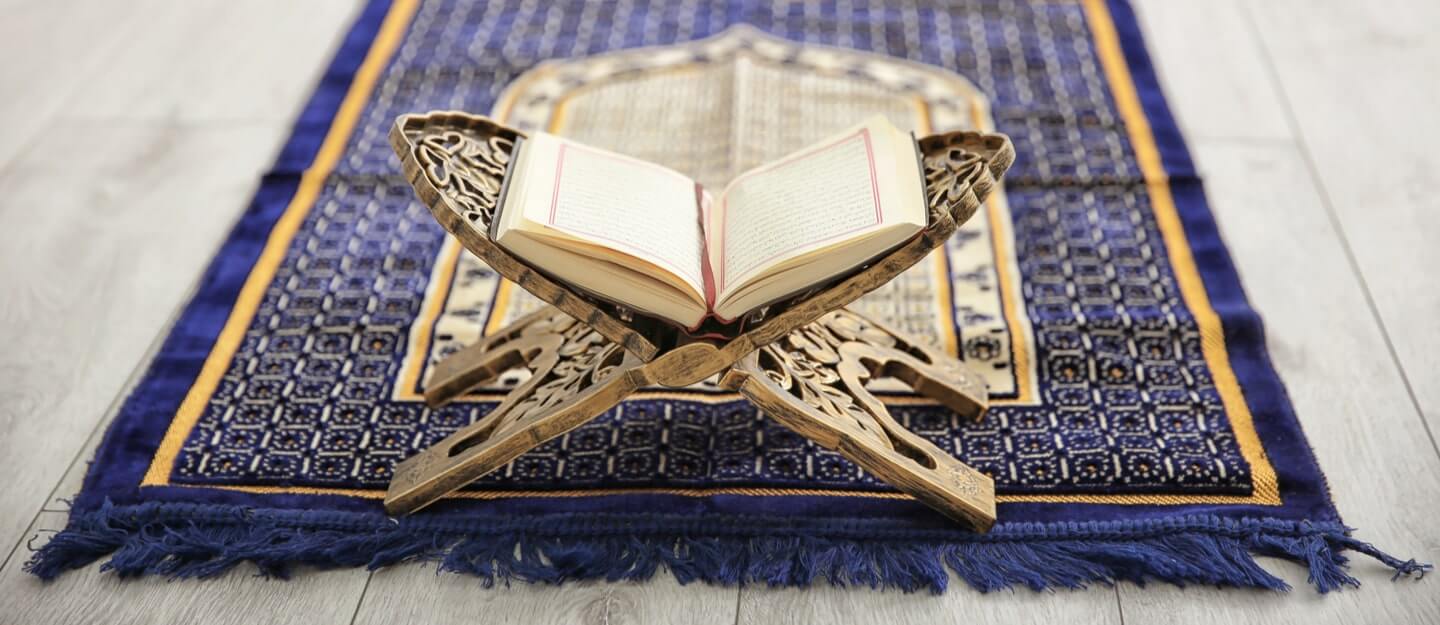
Trying to determine the Fajr or Isha scheduled salah timings may be overwhelming. However, once you understand them carefully, you can be more disciplined and heartfelt in your Namaz. We’ve listed the different prayer times in Dubai for February 2025. The range of the Salah times mentioned below highlights the time on the first and last day of the month, respectively. For those looking for prayer times today, this guide can help you plan your daily Namaz accurately.
The range of the Namaz timings mentioned below highlights the time on the first and last day of the month, respectively.
- The Fajr prayer time in Dubai today will range from 05:26 am to 05:42 am throughout February.
- The Sunrise prayer time in Dubai will range from 06:43 am to 07:02 am over the month.
- The Dhuhr prayer time in Dubai will be 12:34 pm or 12:36 pm throughout the month.
- The Asr prayer time in Dubai will range from 03:40 pm to 03:51 pm in February.
- The Maghrib prayer time in Dubai will range from 06:07 pm to 06:23 pm throughout February.
- The Isha prayer time in Dubai will range from 07:23 pm to 07:37 pm throughout February.
Whether you’re in Jumeirah or Deira, following the Islamic prayer times Dubai helps Muslims maintain their spiritual obligations wherever they may be.
Namaz / Prayer Timetable as Per Islam for February 2025
This table shows all the Islamic prayer times in Dubai for February 2025 including Fajr, Dhuhr, Asr, Maghrib, and Isha prayer timings.
|
Day |
Date |
Fajr |
Shuruq |
Dhuha |
Dhuhr |
Asr |
Maghrib |
Isha’ |
Qibla Hour |
|
Saturday |
01-Feb-25 |
05:42 |
07:02 |
09:02 |
12:35 |
15:40 |
18:07 |
19:23 |
— |
|
Sunday |
02-Feb-25 |
05:42 |
07:01 |
09:01 |
12:36 |
15:41 |
18:07 |
19:23 |
— |
|
Monday |
03-Feb-25 |
05:42 |
07:01 |
09:01 |
12:36 |
15:41 |
18:08 |
19:24 |
— |
|
Tuesday |
04-Feb-25 |
05:41 |
07:00 |
09:00 |
12:36 |
15:42 |
18:09 |
19:25 |
— |
|
Wednesday |
05-Feb-25 |
05:41 |
07:00 |
09:00 |
12:36 |
15:42 |
18:09 |
19:25 |
— |
|
Thursday |
06-Feb-25 |
05:40 |
06:59 |
08:59 |
12:36 |
15:43 |
18:10 |
19:26 |
— |
|
Friday |
07-Feb-25 |
05:40 |
06:58 |
08:58 |
12:36 |
15:43 |
18:11 |
19:26 |
— |
|
Saturday |
08-Feb-25 |
05:39 |
06:58 |
08:58 |
12:36 |
15:44 |
18:11 |
19:27 |
— |
|
Sunday |
09-Feb-25 |
05:39 |
06:57 |
08:57 |
12:36 |
15:44 |
18:12 |
19:28 |
— |
|
Monday |
10-Feb-25 |
05:38 |
06:57 |
08:57 |
12:36 |
15:45 |
18:13 |
19:28 |
— |
|
Tuesday |
11-Feb-25 |
05:38 |
06:56 |
08:56 |
12:36 |
15:45 |
18:13 |
19:29 |
— |
|
Wednesday |
12-Feb-25 |
05:37 |
06:55 |
08:55 |
12:36 |
15:46 |
18:14 |
19:29 |
— |
|
Thursday |
13-Feb-25 |
05:37 |
06:55 |
08:55 |
12:36 |
15:46 |
18:15 |
19:30 |
— |
|
Friday |
14-Feb-25 |
05:36 |
06:54 |
08:54 |
12:36 |
15:47 |
18:15 |
19:30 |
— |
|
Saturday |
15-Feb-25 |
05:35 |
06:53 |
08:53 |
12:36 |
15:47 |
18:16 |
19:31 |
— |
|
Sunday |
16-Feb-25 |
05:35 |
06:53 |
08:53 |
12:36 |
15:47 |
18:17 |
19:31 |
— |
|
Monday |
17-Feb-25 |
05:34 |
06:52 |
08:52 |
12:36 |
15:48 |
18:17 |
19:32 |
— |
|
Tuesday |
18-Feb-25 |
05:33 |
06:51 |
08:51 |
12:36 |
15:48 |
18:18 |
19:32 |
— |
|
Wednesday |
19-Feb-25 |
05:33 |
06:50 |
08:50 |
12:36 |
15:48 |
18:18 |
19:33 |
— |
|
Thursday |
20-Feb-25 |
05:32 |
06:49 |
08:49 |
12:36 |
15:49 |
18:19 |
19:33 |
— |
|
Friday |
21-Feb-25 |
05:31 |
06:49 |
08:49 |
12:35 |
15:49 |
18:20 |
19:34 |
— |
|
Saturday |
22-Feb-25 |
05:31 |
06:48 |
08:48 |
12:35 |
15:49 |
18:20 |
19:34 |
— |
|
Sunday |
23-Feb-25 |
05:30 |
06:47 |
08:47 |
12:35 |
15:49 |
18:21 |
19:35 |
— |
|
Monday |
24-Feb-25 |
05:29 |
06:46 |
08:46 |
12:35 |
15:50 |
18:21 |
19:35 |
— |
|
Tuesday |
25-Feb-25 |
05:28 |
06:45 |
08:45 |
12:35 |
15:50 |
18:22 |
19:36 |
— |
|
Wednesday |
26-Feb-25 |
05:27 |
06:44 |
08:44 |
12:35 |
15:50 |
18:22 |
19:36 |
— |
|
Thursday |
27-Feb-25 |
05:27 |
06:44 |
08:44 |
12:35 |
15:50 |
18:23 |
19:37 |
— |
|
Friday |
28-Feb-25 |
05:26 |
06:43 |
08:43 |
12:34 |
15:51 |
18:23 |
19:37 |
— |
Important Note: These timings are approximate and may vary slightly. For precise prayer schedules, especially for specific areas like prayer times in Jumeirah Dubai or prayer times in Deira Dubai, consult your local mosque or a trusted prayer app.
Islam: The 3rd Abrahamic Faith
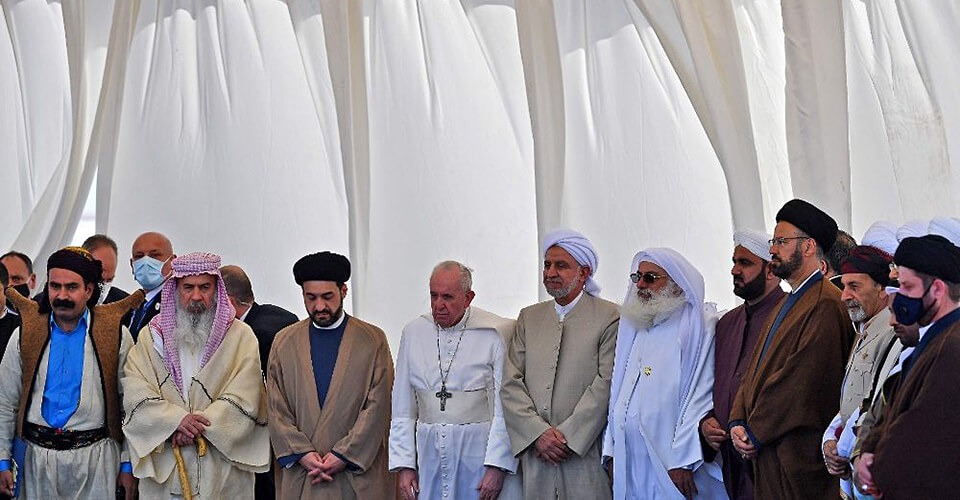
Now that you know the prayer times in Dubai, you might be curious to explore more about Islam. So, let’s begin by grasping its significance. Islam is the 3rd Abrahamic faith, after Judaism and Christianity. Islam comes from the Arabic word ‘Salam’, which means ‘peace’. Emerging in the 7th century, it is deeply rooted in the teachings of Prophet Mohammad and the Quran.
The 5 Pillars of Islam: Key Principles
Islam has some core belief systems and practices expressed in the five pillars of Islam. These five integral beliefs are mandatory for all Muslims and should be fulfilled throughout their lives. Let us look at them one by one:
-
Shahadah (Declaration of Faith)
Muslims express their faith in Islam through the Shahadah. They declare their belief in Islam through Shahadah by confirming that no other God exists but Allah. Shahadah is one of Islam’s fundamentals, claiming, “There is no God but Allah, and Mohammad is the Messenger of Allah.” One has to recite the Shahadah with full conviction and recite it as an acceptance of Islam. It is also recited during the daily Muslim prayer time in Dubai, as well as in the daily prayers of Muslims Worldwide.
-
Salah Timing in Dubai (Ritual Prayer)
Salah timing in Dubai, also known as the ritual prayer, is an integral part of Islam. This direct connection between the worshippers and Allah involves conforming to Allah’s will. Muslims pray five times daily, facing the Kaaba in Mecca, following the prescribed Muslim Prayers time in Dubai.
-
Zakat (Charity)
Zakat is the third pillar in Islam, emphasising the duty to contribute to charity in Islam. The word itself means ‘to purify.’ Individuals must give 2.5% of their annual savings, known as Nisab, calculated based on earned wealth. If a Muslim reaches this wealth threshold, they must pay Zakat. Currently, Nisab is determined at 85 grams of pure gold. Zakat can be directed to eight categories: the poor, the needy, those employed with collecting Zakat, individuals in debt, those in the service of Allah, travellers, and the vulnerable among new converts to Islam. Payment can be made directly to individuals or through charitable organisations.
-
Sawm (Fasting)
During Ramadan, Muslims must fast (Sawm) from dawn to sunset. It is the 4th pillar of Islam and signifies the purification of the soul and the strength of one’s faith. Muslims abstain from drinking and food until sunset. Fasting is mandatory for Muslims who are healthy and have reached puberty. Those who are ill, are travelling, menstruating, pregnant, or breastfeeding are not obligated to fast. With the fast onset, Muslims have Suhur/ Imsak (a pre-dawn feast). They then complete the fast with Iftar (a meal at sunset). Keeping track of Ramadan prayer times is essential during this holy month, as Muslims also do extra prayers at night, known as Taraweeh.
-
Hajj (Pilgrimage to Mecca)
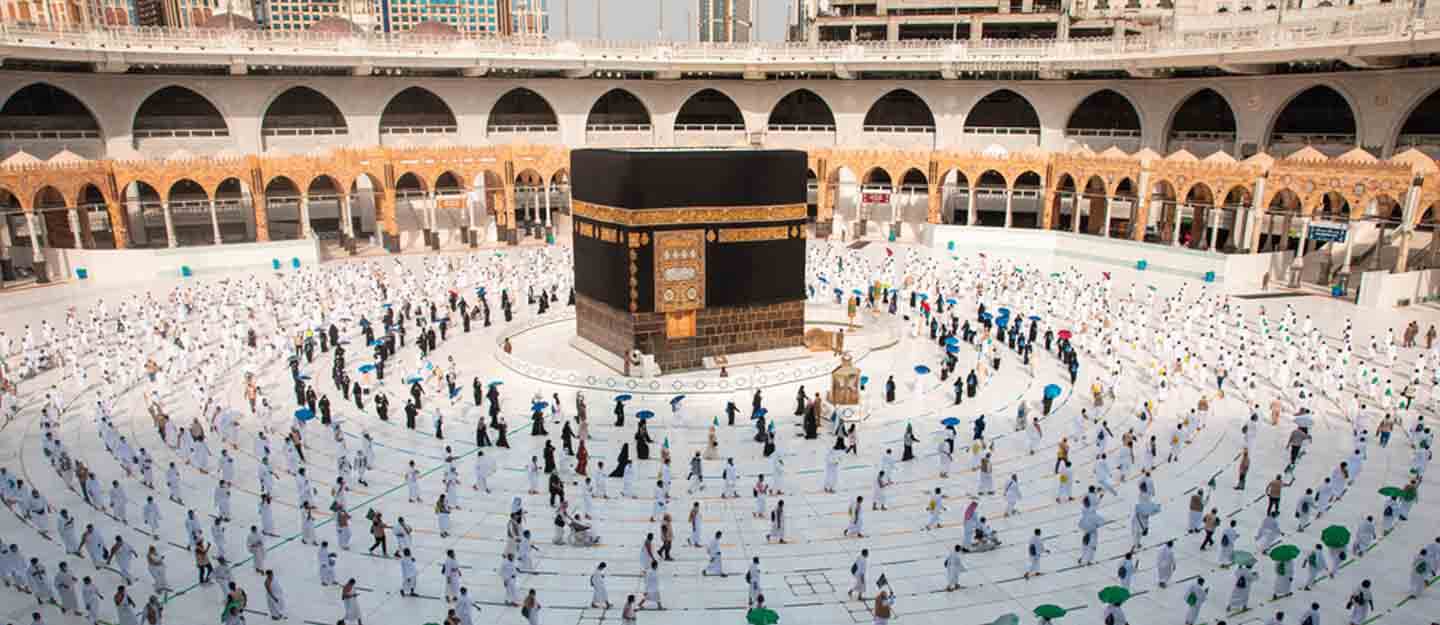
It is also known as the 5th pillar of Islam, Hajj, the pilgrimage to Mecca. Every Muslim who is physically and financially able is obligated to perform it. They have to do so at least once in their life. It is performed in Dhu-al-Hijjah (the final month of the Islamic calendar). Muslims have to wear a white piece of cloth (Ihram) and perform circumambulation (Tawaf). They also perform Sa’i, walking seven times between the Safa and Marwa hills. During this, they spend a day in Arafat, seeking forgiveness. Additionally, Hajj also comprises animal sacrifice and satan’s stoning in Mina. Muslims conclude the Hajj by celebrating Eid-al-Adha.
Important Features of the Islamic Faith
Let us now learn about some key aspects of Islam. These are:
- Prayer Times: The Islamic prayer time in Dubai holds great significance. These daily prayers show Muslims’ devotion and submission.
- Different Types of Islamic Prayers: Muslims do Fard (mandatory) and Sunnah and Nafl (optional) prayers. They must pray five times daily. That’s why the Muslims regularly follow the prayer times of Azan or Salah and others.
- Ablution (Wudu): Muslims do Wudu before praying to cleanse themselves spiritually and physically.
- Intention (Niyyah): The sincerity of intention is important in Islam. A good Niyyah during Islamic prayer time Dubai will reap good results.
- Mosques: Mosques act as places of worship and are community hubs for spiritual growth and communal prayers. Dubai mosques provide a place for regular prayer, especially during the holy month of Ramadan
- The Prophets: Islam recognises prophets, including Adam, Noah, Abraham, Moses, Jesus, and the final prophet, Muhammad.
- Angels: Belief in angels is another aspect of Islam. Each individual has angels recording their deeds.
The Five Daily Prayers in Islam
Muslims observe five daily prayers (Salah): Fajr at dawn, Dhuhr shortly after noon, Asr in mid-afternoon, Maghrib at sunset, and Isha after dark. Understanding Muslim prayers time in Dubai is essential for Muslims living in or visiting the city, as these salah are observed at specific times daily. Salah typically involve reciting the opening chapter of the Quran (Surat Al Fatiha) and is often performed on a prayer rug.
Men typically pray together in a mosque, led by an Imam. However, individuals can also perform Salah at home or elsewhere if a mosque or congregation is unavailable. On Fridays, men gather for the congregational prayer (Jummah), which includes a sermon and prayer led by the Imam. Women are encouraged to participate but not obligated.
Namaz is considered the most important act of worship in Islam, a direct connection with Allah. It involves specific rules regarding timing, frequency, and direction, depending on the Salah.
Types of Islamic Prayers: Fard, Sunnah, and Nafl
In Islam, prayers are categorised into two main types: Fard, which is mandatory, and Sunnah and Nafl, which are voluntary.
All Muslims must perform Fard prayers, also known as obligatory prayers. Five such prayers must be conducted daily, regarded as one of the fundamental pillars of Islam.
-
Sunnah and Nafl Prayers
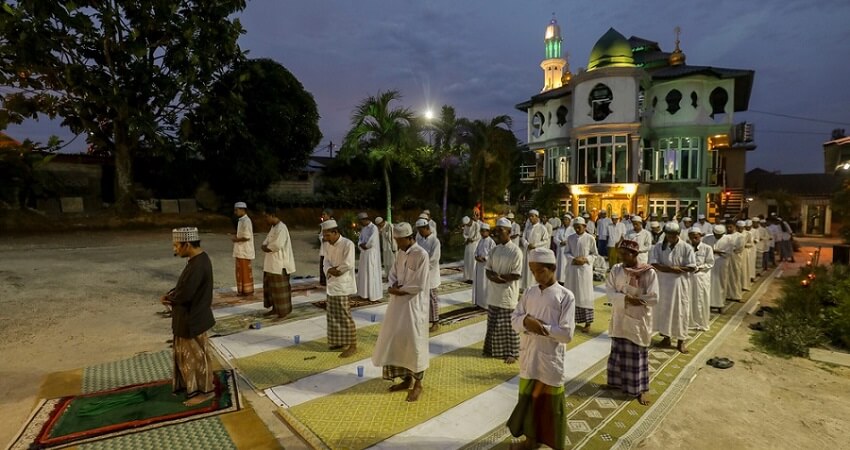
Sunnah and Nafl prayers are voluntary acts of worship. They show the extra devotion of Muslims towards Allah. Sunnah is based on the actions and sayings of Prophet Mohammed, and Nafl is a compulsory prayer that can be done anytime. Salah has 2,3/ 4 Rakahs. A Rakah is a collection of steps that begins with Qiyaam (standing with folded hands), along with Rukuh (bowing down, with hands on the knees), standing again before doing Sajdah twice (prostration on the ground) and Tashahud (sitting on the legs) and concluding it with Tasleem (turning the head to each side and saying Salaam alaikum wa Rahmat Ullah).
-
The Five Obligatory Prayers ( Fajr, Dhuhr, Asr, Maghrib & Isha)
- Fajr Prayer: The Fajr Prayer time Dubai is at dawn, giving the supplicant a chance to reflect on the day ahead. This helps prepare for daily duties and allows spiritual renewal. The prayer consists of two rak’ahs and is very important to establish a connection with God.
- Dhuhr Prayer: Dhuhr Prayer time Dubai is the second prayer of the day and is performed when the sun passes the zenith, usually around midday. This prayer allows people to pause their daily activities and seek guidance and blessings for the day ahead. It offers a moment of spiritual reflection and mindfulness, consisting of 12 rak’ahs.
- Asr Prayer: Asr Prayer time Dubai is usually done mid-afternoon when the sun has passed the zenith; thus, its namaz time in Dubai is early evening. It offers Muslim residents a chance to connect with Allah throughout the day and reorient their intentions towards their spiritual obligations. This helps prevent people from fulfilling their religious duties and consists of 8 rak’ahs.
- Maghrib Prayer: Maghrib Prayer time in Dubai is the official evening prayer in Dubai and marks the end of Ramadan fasting. This prayer offers a chance to show gratitude for the day and symbolises the transition from day to night. Maghrib also helps people ask for forgiveness for misdeeds during the day and reflect on one’s actions. The prayer consists of 7 rak’ahs.
- Isha Prayer: Isha Prayer time Dubai is the fifth and final prayer of the day, performed an hour before midnight, marking the end of the daily worship routine. The prayer closes the day’s work cycle and offers security for the night until the Fajr prayer comes again. Offering Isha Prayer to Allah is highly rewarding and helps acquire strength for the upcoming day.
-
Adhan (Call to Prayer)
Adhan is the Islamic call to prayer, announced by a muezzin from the minaret of a mosque five times daily. It serves as the primary invitation for Muslims to gather for obligatory (Fard) prayers. A second call, the Iqamah, is made inside the mosque to signal the start of the prayer service. In Islam, giving Azaan before every prayer or namaz is necessary.
Other Prayers Along With the Five Compulsory Prayers
-
- Jumuah Prayer: The congregational Friday prayer, is a significant weekly prayer.
- Tahajjud Prayer: The voluntary night prayer, performed later in the night for spiritual reflection.
- Tarawih Prayer: Special nightly prayers during the month of Ramadan, are offered after Isha.
- Eid Prayers: Celebratory prayers held during the festivals of Eid al-Fitr and Eid al-Adha, marking the end of Ramadan and the Hajj pilgrimage.
Ablution (Wudu)
Wudu, or ablution, is a necessary ritual purification in Islam before prayer and worship. It involves washing specific body parts with clean water, as outlined in the Quran and Hadith. The four essential acts of Wudu are washing the face, arms, wiping the head, and washing the feet. Following this procedure ensures ritual purity and prepares one for prayer.
Intention (Niyyah)
Niyyah, or intention, is a crucial aspect of Islamic worship. It involves performing an act solely for the sake of Allah. Before starting any act, such as Wudu (ablution) or Salah (prayer), one should focus on their intention to please Allah. To truly perform Wudu or Salah, center yourself and quiet your thoughts, emphasizing the intention behind the act.
Niyyah for Salah is not spoken aloud but made inwardly. Focusing on the phrase “Bismillah” (in the name of Allah) can help you center your intention and prepare for prayer.
Mosques
The mosque is the heart of Muslim religious and social activities. It is where they come together to pray five times daily and engage in other spiritual practices such as reading the Quran, attending lectures, and participating in community events. They serve as community centres, bringing a sense of unity, education, and spiritual growth. People visit these places during prayer times in Dubai.
Additionally, the mosque provides a sanctuary for those seeking help, offering support and guidance to Muslims during challenging times.
Prophets
The Prophets in Islam play an essential role in conveying Allah’s guidance to humanity. Muslims believe in all the Prophets like Adam, Abraham, Moses, and Jesus. Prophet Mohammed is known as the last prophet of Islam. These members are considered an example for the Muslim community, serving as a role model for a virtuous life, and Allah sent them to share their beliefs about oneness. Their stories are considered a source of inspiration and wisdom, usually found in the Quran
Angels
In Islam, angels are celestial beings made by Allah from pure light. They hold a significant and respected place in the religion. Muslims understand that angels have particular duties, such as conveying Allah’s messages, keeping track of people’s actions, and offering guidance and protection. Angels are different from humans because they don’t have free will; they follow Allah’s orders perfectly, showing their commitment as loyal servants of the divine purpose.
What is the Importance of the Adhan?
The call to prayer, known as the Adhan, is significant for Muslims as it represents the unity of the Muslim community and the devotion of believers to Allah’s will. Muslims are required to perform the Adhan five times every day. It is offered by facing the holy Kaaba in Makkah.
- It teaches the Muslim community why Allah is the most important and greatest.
- It urges Muslims to take time for Allah every day and spare some minutes for worshipping him, with official namaz times in Dubai being decided much beforehand.
- Adhan reminds people of the final day of judgment when Allah will resurrect people from their graves.
- Adhan is the first thing said in a child’s ears and is an integral part of the Muslim faith, bringing together the community daily.
Advantages of Different Positions While Performing Salah
Each position assumed during prayer has many spiritual and physical benefits. These promote mindfulness, flexibility, and a deep connection with the divine. The Islamic prayers have certain positions, such as Qiyam, Ruku, Sajdah, and Tashshhud. It has many advantages:
- Qiyam (Standing) – It improves the blood flow to the lower portion of one’s body. This strengthens the leg muscles.
- Ruku (Bowing) – It is good for the lower vertebral column. This reduces problems like back pain as it stretches the ankles, wrists, elbows, and knees.
- Sajdah (Prostration) – It involves bowing down to Allah towards Qiblah. It improves the blood flow to one’s brain and enhances the pituitary and pineal glands.
- Tashahhud (Sitting Posture) – This posture is like Vajrasana. It strengthens the thigh muscles and calf muscles. It also improves digestion and helps keep the spine straight.
Wrapping Up
The Dubai prayer schedule plays a vital role in helping Muslims maintain their connection with Allah. Following the Islamic prayer times Dubai, whether it’s Fajr prayer time Dubai today, or the specific prayer times in Jumeirah Dubai or prayer times in Deira Dubai, ensures that Muslims fulfill their religious obligations with discipline and dedication. Islam teaches submission to Allah and encourages spiritual growth, making Namaz an integral part of daily life in Dubai.
Recommended for you :
| Provisions of UAE Citizenship Acquisition | UAE Citizenship |
|
Know About Family Visa in UAE |
|
|
Explore Dubai 2040 Urban Master Plan |
|
|
Know About Hindu Temple In Jebel Ali |
|
|
Know About Dubai Tourist Visa |
|
|
All About Darb Toll Gate |
Frequently Asked Questions (FAQs)
Muhammad started Islam and proclaimed the Quran, the holy book of Islam. He lived in Saudi Arabia his whole life, was born in Mecca around 570 CE, and died in Medina in 632.
In Islam, prayer is the second most important duty for all Muslims. It's something they must do, and there are five prayers each day at different times. The timing changes depending on the season. Each prayer takes about 10 to 15 minutes.
Muslims pray five times daily, but the most crucial prayer each week is on Friday, known as Jumah, or the day of the gathering.
Sheikh Zayed Grand Mosque is one of the most beautiful mosques in Abu Dhabi, UAE.
Yes, non-Muslims can visit mosques in the UAE.
The general prayer timings for Dubai in February 2025 are - Fajr (05:26 am to 05:42 am), Shuruq (06:43 am to 07:02 am), Dhuhr (12:34 pm to 12:36 pm), Asr (03:40 pm to 03:51 pm), Maghrib (06:07 pm to 06:23 pm), and Isha (07:23 pm to 07:37 pm). These timings may change every Friday of the month and, thus, need to be regularly tracked.
The fajr prayer timing in Dubai (with a loud recitation of the Quran) is from the beginning of dawn to sunrise. Who is the founder of Islam?
How long do Muslims pray?
What is the most important prayer in Islam?
What are some of the most beautiful mosques in Abu Dhabi?
Can non-Muslims visit mosques in the UAE?
What is Friday's prayer time in Dubai?
What was the last time you prayed, Fajr?

